Published: | Updated:
Vick Hope has announced that she will eat her own capsulated placenta following the birth of her son Micha.
Eating the placenta after birth is not an entirely foreign concept, with many claiming it can boost energy levels, aid milk production and even slash post-natal depression.
But experts have previously sounded the alarm over the trend, and suggested there are no known health benefits to the mother—and even some risks.
The trend has gained popularity in recent years, after Kim Kardashian and Millie Mackintosh, former Made In Chelsea star, have opened up about eating the organ, which forms during pregnancy, acting as the baby’s lifeline while in the uterus.
No one doubts that the placenta keeps a foetus healthy, delivering key nutrients to the baby via the umbilical cord.
But a growing body of research suggests that eating it—either raw, cooked or in pill form—could be at best pointless, and even harmful.
Placentophagy is the practice of eating the placenta.
In the UK, mothers are usually permitted to take their placenta home if their intentions are made clear to the midwife before birth.
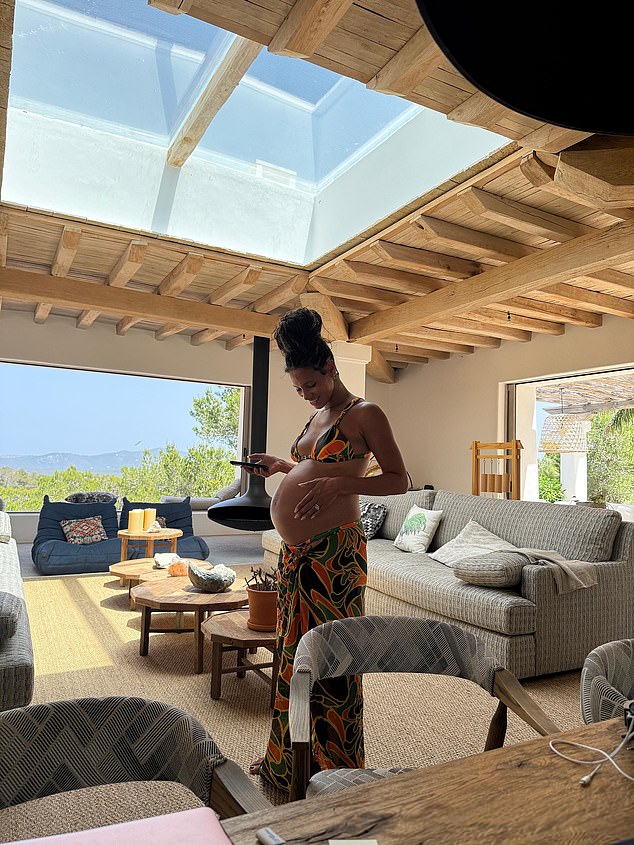
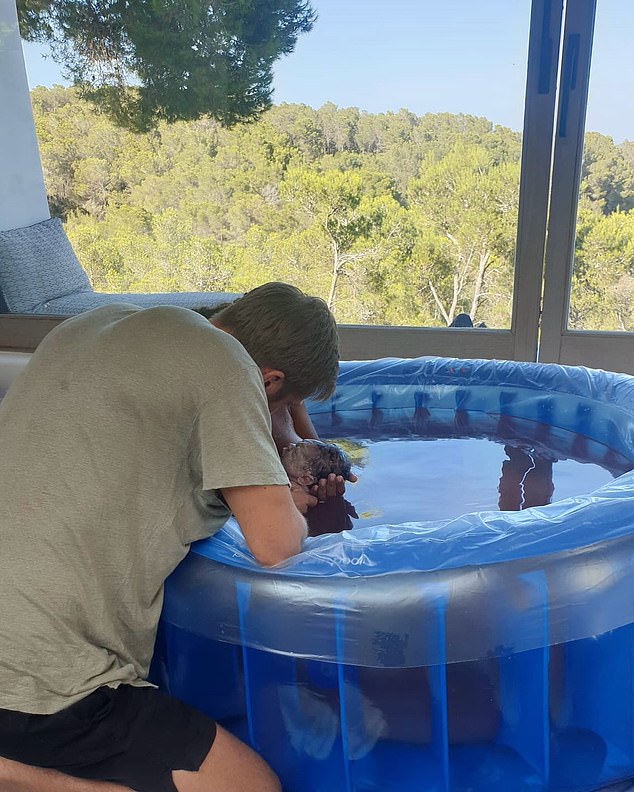
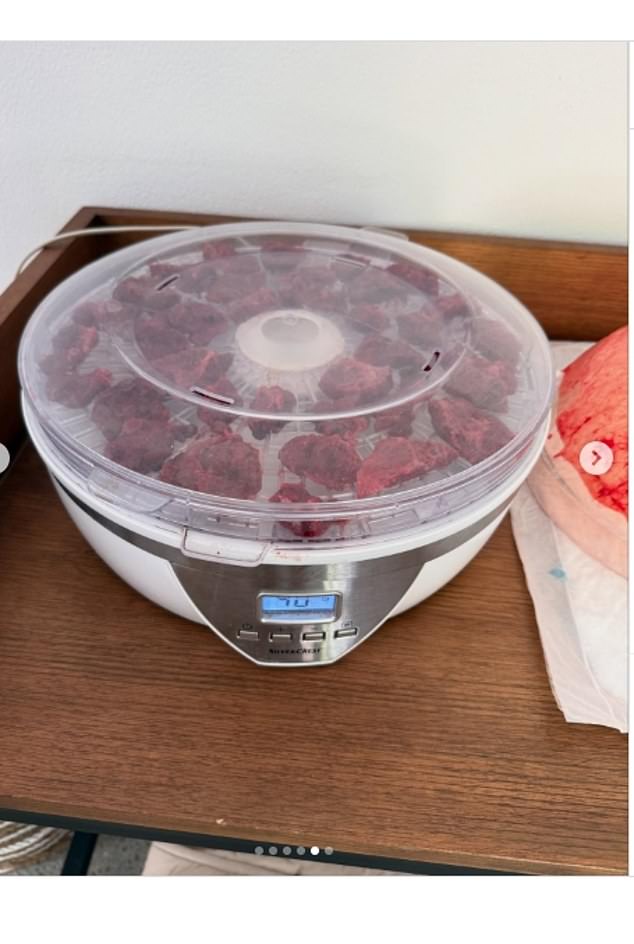
Routinely, the placenta and umbilical cord are stored by the hospital for 48 hours after birth so in the event that a baby becomes unwell, the organ can be sent for testing—in which case it is no longer safe to eat.
Advice is given on how to look after the placenta at home safely—in a freezer—to reduce the possibility of cross-contamination.
Placenta encapsulation, however, involves grinding the placenta down in its raw state, or after it has been dehydrated, costing around £250.
The capsules are usually favorless and odorless.
The mother then takes the placenta tablets like supplements following the birth of their child.
But, speaking to the Daily Mail, health experts have criticised celebrities for promoting the practice—for which there is very little affirming research.
Dr Philippa Kaye, a GP who specialises in pregnancy and sexual health said: ‘Not only is there no evidence for the efficacy of consuming your placenta in terms of preventing postnatal depression, boosting energy, decreasing bleeding and more, eating your placenta may actually be harmful.
‘The US Centre for Disease Control and Prevention has warned against taking placenta capsules as the preparations may not destroy potentially harmful bacteria and viruses in the placenta, such as Group B strep and cause infections in you or your newborn.’
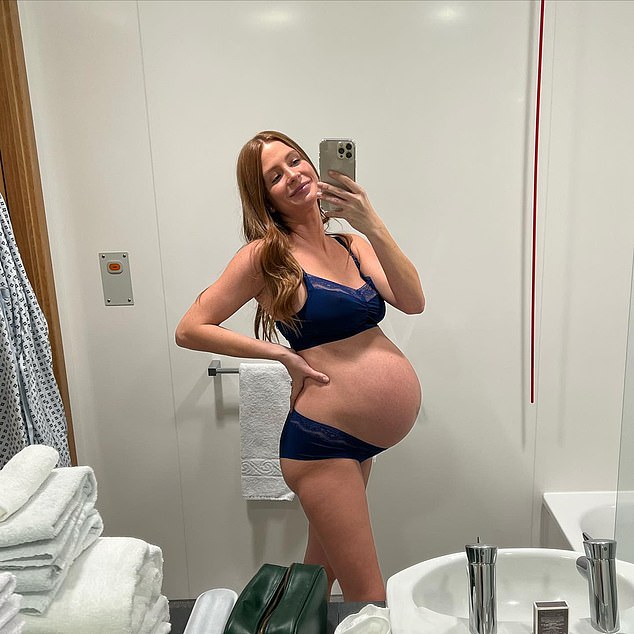

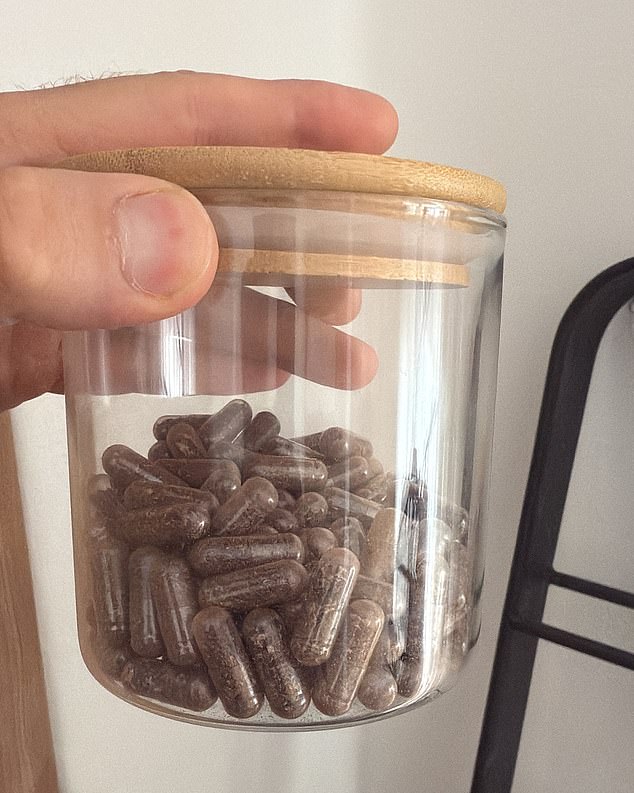
‘No healthcare professional with any integrity would endorse these pills,’ Dr Ellie Cannon, a GP specialising in paediatric health, added.
‘There is no scientific basis for any benefit whatsoever, physical or mental.’
She continued: ‘But also, when high profile people say they can do things like alleviate postpartum depression, it’s dangerous.
‘There’s a real risk that the public will choose to take this unproven, pseudoscientific treatment rather than seek medical help.’
Meanwhile, Dr Ashfaq Khan, a consultant obstetrician and gynecologist said there are ‘no scientific studies’ that suggest consuming a placenta boasts any health benefits.
This view is echoed in several review papers published in medical journals.
A 2018 study found that women who were given placebo capsules or placental pills experienced no significant changes in mood, energy levels or the emotional bond with their newborn baby.
One study that evaluated the amount of hormones in the placenta could potentially reach a level of physiological impact if ingested.
However, once the placenta is handled, dehydrated and packaged into a pill, it is unclear if the hormones are biologically present anymore.
Nevada-based researchers also found that eating the placenta after birth offers no benefit to new mothers, highlighting that consuming placenta pills is not a sufficient source of iron.
Dr Sharon Young, lead author of the study said: ‘While the study doesn’t provide firm support for or against the claims about the benefits of placentophagy, it does shed light on this much debated topic.
‘What we have uncovered are interesting areas for future exploration, such as small impacts on hormone levels for women taking placenta capsules, and small improvements in mood and fatigue in the placenta group.’
In 2017, the Centres for Disease Control and Prevention issued a warning against the practice after a baby was diagnosed with a strep infection after his mother consumed placenta pills.
The infection – which kills one baby a week in the UK – was transferred to the baby through breast milk when the mother took placental capsules.
In a shocking report the corona said: ‘That’s the case that still haunts everyone in the industry.’








